In the world of African football, the year 2024 is already shaping up to be indelibly marked with the 34th edition of the African Cup of Nations (AFCON 2023). From 13 January to 11 February, the spotlight will be on Côte d’Ivoire, the host country for this prestigious competition organised by the Confederation of African Football (CAF), which brings together the continent’s best teams. On the eve of this eagerly-awaited event, we take a look at this Complete guide to AFCON 2023, where we explore every aspect of this exceptional event that unites Africa through the universal language of football.
AFCON 2023 is taking place in the heart of Côte d’Ivoire, a country renowned for its warmth and immeasurable love of football. From the bustling stadiums, the streets will vibrate to the rhythm of sporting exploits. This is bound to create the kind of electric atmosphere that only this country knows how to imbue major competitions with.
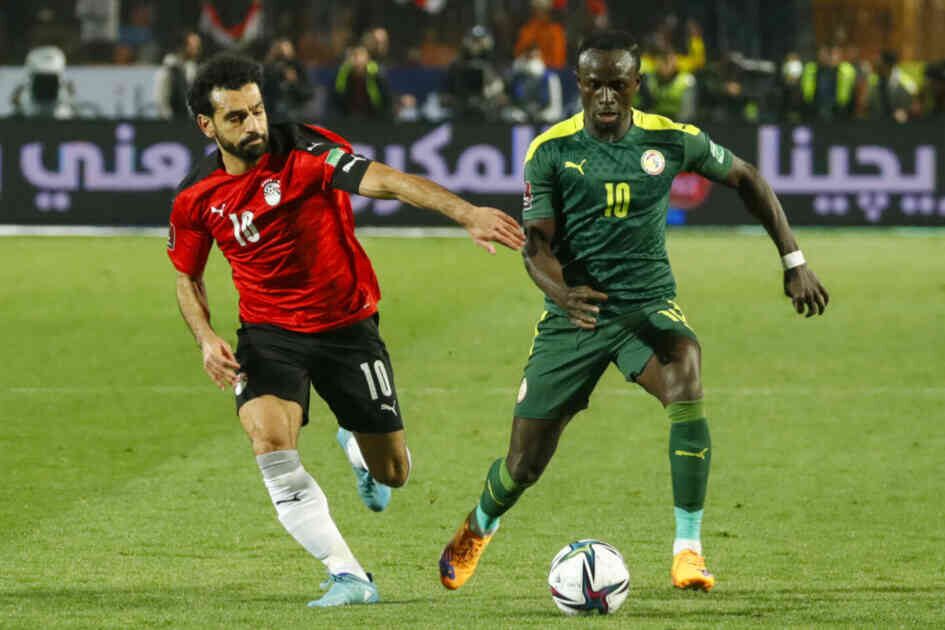
Senegal, crowned champions at the last edition of the competition, are the frontrunners. The Lions of Teranga are determined to defend their title, but the fierce competition from the other qualified teams promises some epic duels on the pitch. In any case, the 2023 CAF Africa Cup of Nations promises to be even more competitive, with 24 qualified teams taking part, including the main favourites Ivory Coast, Senegal, Morocco, Algeria, Egypt, Nigeria and Cameroon. This expansion of the format, introduced five years ago by CAF, promises intense encounters and potential surprises. All of which goes to make this edition one of the most memorable in the competition’s recent history.
Complete guide to AFCON 2023
The 2023 edition of the CAF Africa Cup of Nations is shaping up to be a tough one after the draw made by the Confederation of African Football. Côte d’Ivoire will be drawn in Group A with Nigeria, Equatorial Guinea and Guinea Bissau. Group B is less challenging, with Egypt, Cape Verde, Ghana and Mozambique. Group C, also known as the group of death, is made up of Senegal, Cameroon, Guinea and Gambia. Group D features Algeria, Angola, Burkina Faso and Mauritania. Mali, Namibia, South Africa and Tunisia make up Group E, while Group F features Morocco, DRC, Tanzania and Zambia.
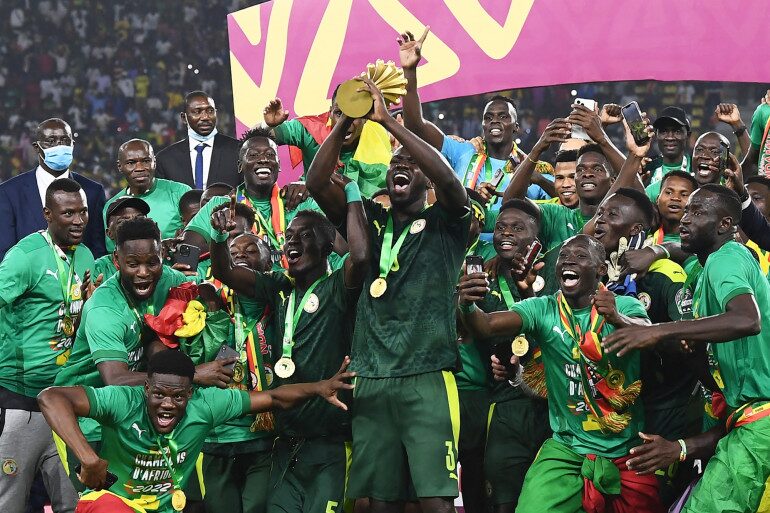
The 2023 African Cup of Nations, the most prestigious competition in the eyes of Africans
South Americans boast the Copa America, Europeans adore the European Championship (Euro). But in Africa, the African Cup of Nations (AFCON) is the flagship competition of the Confederation of African Football (CAF), and Africans are very fond of it.
Created in 1957, the African Cup of Nations (AFCON) is the flagship competition of the Confederation of African Football (CAF). It is held every two years, and although African football suffers from a number of ills, the apex body has made considerable efforts, particularly with regard to the AFCON. The CAF trophy, so coveted by African stars, is the most expensive of all international trophies. The value of this golden AFCON cup is estimated at 150,000 euros (around 97,000,000 CFA ).
Only the FIFA World Cup trophy (18 million euros) costs more than the AFCON as far as international cups are concerned. The Copa America, which is the dream of South American champions such as Lionel Messi, Luis Suarez and Neymar, is not worth as much. It costs 10 times less than the AFCON (African Cup of Nations). With an estimated value of 13,200 euros, or 8,500,000 FCfA, the Copa América trophy is visibly derisory.
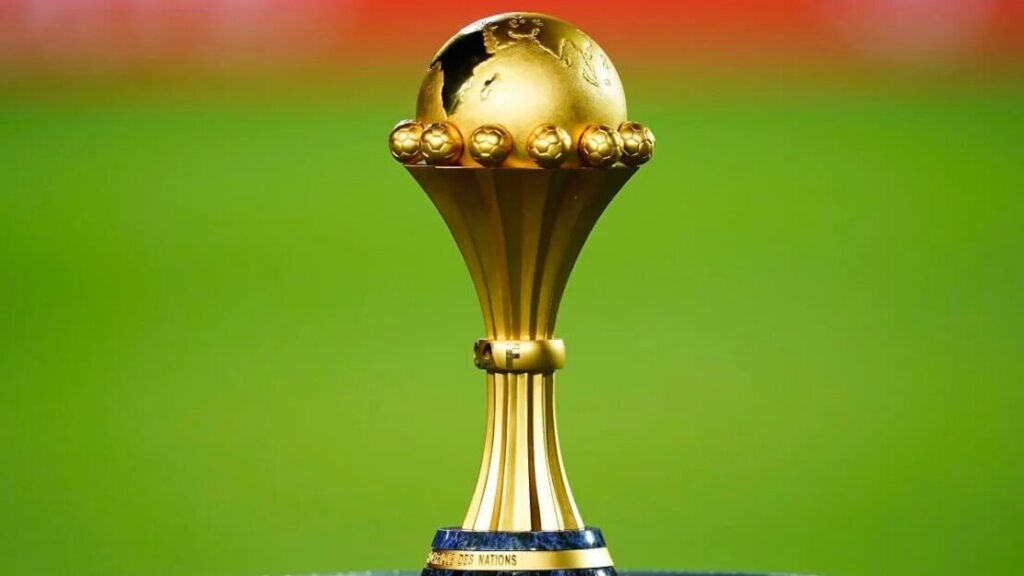
While the European Championship (Euro) is as prestigious as the World Cup because of its rarity and the level of the competition, the trophy awarded to the winner by UEFA is not worth the AFCON (African Cup of Nations). According to the competition’s Wikipedia page, the value of the Euro is estimated at 35,000 Swiss francs (22,500 euros) or 14,625,000 fcfa. Like the Copa America, that’s a pittance compared to the value of the AFCON, even though it is more prestigious. Next summer, France, Germany, Portugal, England, Croatia and Spain will all be vying for the cup, which is currently held by Italy, who narrowly missed out on the play-offs.
Aside from the prestige of lifting the 2023 Africa Cup of Nations trophy, each team is approaching the matches in this competition with the aim of preparing as well as possible for the rest of the 2026 World Cup qualifiers, in which the African continent will have nine participants. All the African teams have already played the first two matches, so the 2023 Africa Cup of Nations is obviously a springboard for ambitious teams to prepare for the tournament. This will certainly add an extra dimension to this already challenging competition.
The 2023 African Cup of Nations is not just a sporting competition, it is also a reflection of the devouring passion for football in Africa. Fans from all over the world will flock to the stadiums. They will undoubtedly create a unique atmosphere where song, dance and colour will combine to create an unforgettable spectacle. This AFCON 2023 promises to be an epic chapter in the history of African football from 13 January to 11 February 2024 in Ivory Coast.
Presentation of the favourite teams of the AFCON 2023
For this 2023 edition of the African Cup of Nations (AFCON 2023), several favourites stand out. Between Senegal, the defending champion, and its challengers from Morocco, Algeria, Côte d’Ivoire, Cameroon, Ghana, Tunisia and Egypt, the battle will be fierce.
SENEGAL
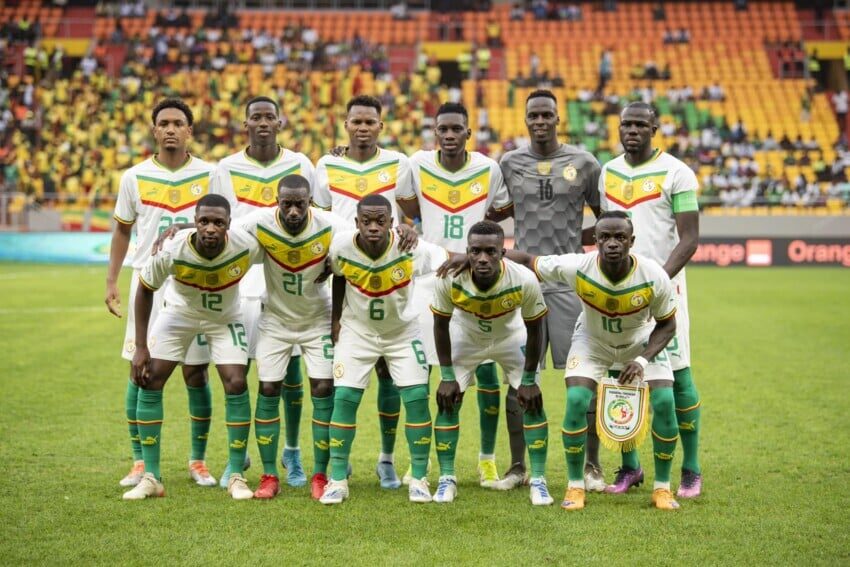
In Group C, the “Lions” are going to have their work cut out. They share their group with Cameroon. The Indomitable Lions have won the African Cup of Nations five times (1984, 1988, 2000, 2002, 2017), with two victories over Senegal in the final. However, the team led by Aliou Cissé is considered to be the second best in Africa and is ranked 20th in the FIFA world rankings. What’s more, the “Lions of Teranga” currently hold the current title, putting them naturally at the top of this group. However, this status will have to be defended, especially as Group C looks to be one of the most competitive in the competition.
MOROCCO
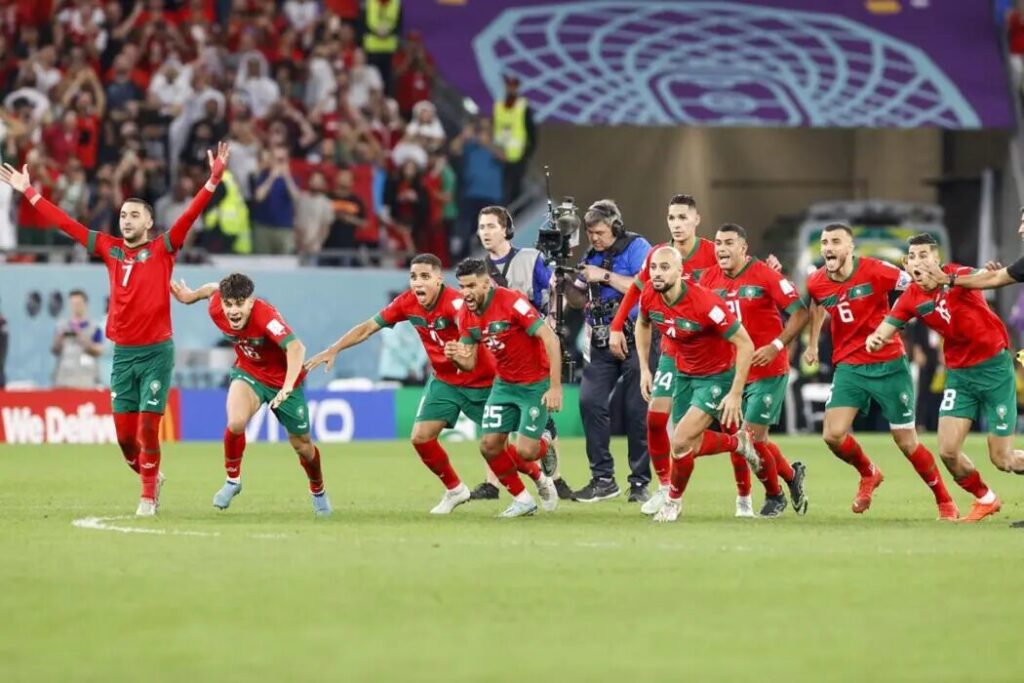
Ranked as the top African nation in the FIFA rankings and 13th in the world, Morocco are clearly the favourites to host the 2023 African Cup of Nations, just ahead of Senegal, by many observers. This recognition is explained by the impressive performances of the team coached by Walid Regragui, which reached the semi-finals of the last World Cup. Having won the competition in 1976, Morocco will be pulling out all the stops to claim the title in 2023. With a view to further strengthening his team for this competition, the Moroccan coach has also made a number of reinforcements. As a result, the team is naturally raising great expectations among the fans.
ALGERIA
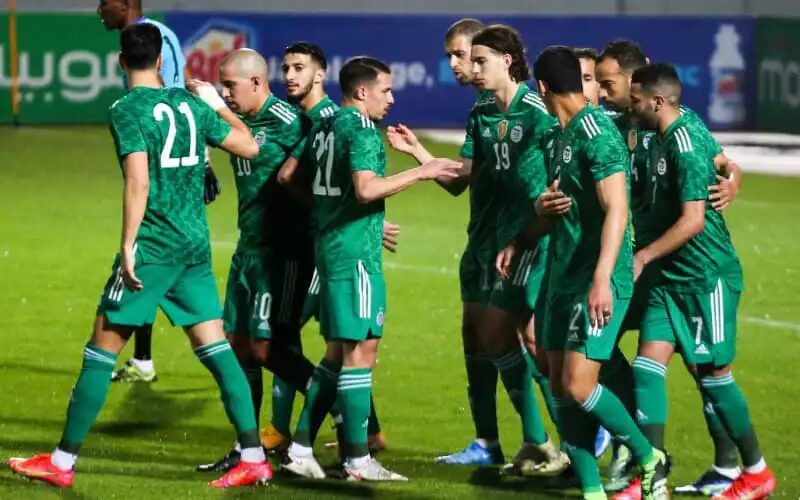
Naturally, Algeria are regarded as one of the favourites for the 2023 CAF Africa Cup of Nations. The “Fennecs” have already written their name into the record books of the African Cup of Nations by winning their first trophy in 1990, then by achieving their second best result in 2019 by winning the title again. Under Djamel Belmadi, the Algerian team, after a disappointing 2021 CAF Africa Cup of Nations, is aiming to redeem itself at this competition. In the meantime, Algeria have also strengthened their squad with the arrival of players such as Houssem Aouar.
IVORY COAST
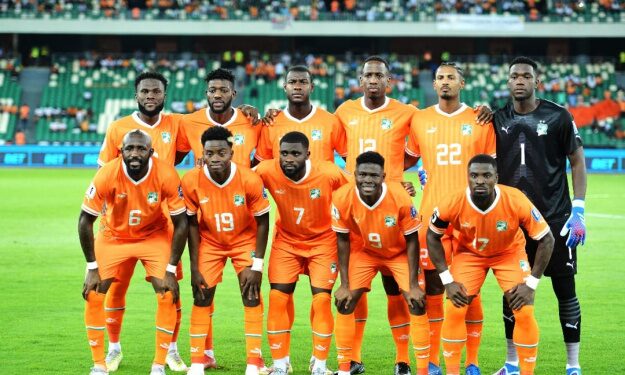
As hosts of this year’s African Cup of Nations, Ivory Coast will have their work cut out, but with the fans on their side, the Elephants are capable of making an impact. Especially as they have a wealth of experience in this competition. Côte d’Ivoire have won the Africa Cup of Nations (AFCON) twice, in 1992 and 2015, beating Ghana on penalties each time.
This year, they will have to repeat those feats. In front of their home crowd, the Ivorians will have a renewed sense of purpose. However, this motivation may affect the way they approach matches. Too much confidence could be detrimental, especially as they share their group with another top team, Nigeria.
NIGERIA
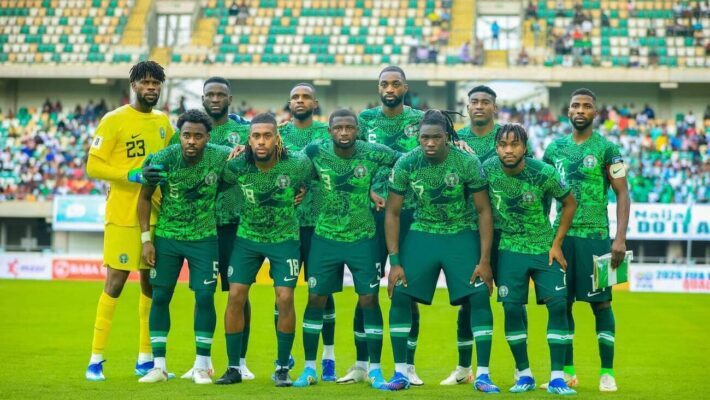
Nigeria will also be a strong contender and, on paper, appear to be the favourites to claim top spot. Historically, Nigeria have won the African Cup of Nations three times, in 1980, 1994 and 2013. With 18 appearances, Nigeria have finished on the podium of this continental tournament a record 15 times. Currently ranked 6th in the FIFA rankings for Africa, the Super Eagles are ahead of Ivory Coast, who are ranked 9th. These factors put Nigeria in a favourable position, while we wait to see what impact the ‘home’ element will have on the Ivorian team.
CAMEROON
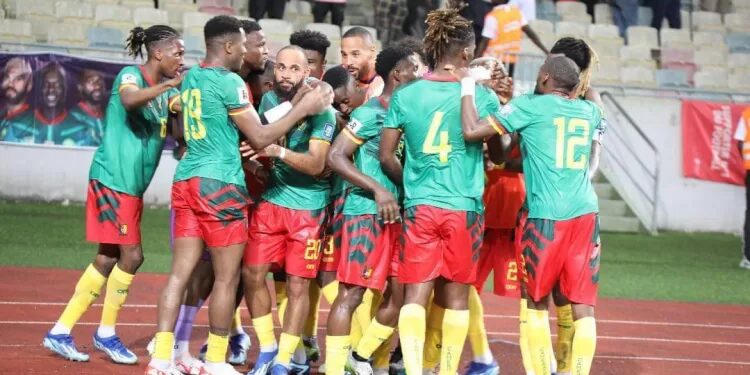
Cameroon share a group with Senegal, which could prove a real obstacle in this competition. In fact, in their last friendly, it was the Lions of Teranga who had the last laugh. But in continental competition, it’s a different matter altogether. The Indomitable Lions have won the African Cup of Nations 5 times (1984, 1988, 2000, 2002, 2017). Twice, they have beaten Senegal in the final. So they have plenty of baggage to bring with them as they bid to reclaim the title, despite the confirmed absences of Ganago and Bryan Mbeumo, both injured at club level.
GHANA
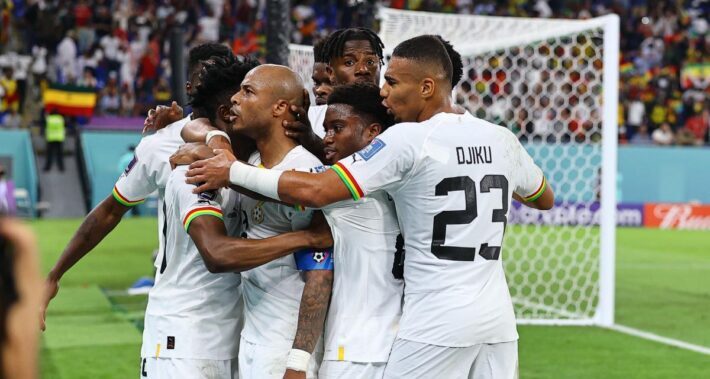
Ghana are also one of the favourites for this African Cup. The new generation of talent, with Mohammed Kudus, Inaki Williams and others, will have to confirm all the good that the football world thinks of them. So this will be an opportunity to convince, at last. Ghana are one of the biggest teams in Africa. The Black Stars have won the competition 4 times in their history. First, in 1963, they finished first, then in 1965, 1978 and the 1982 edition. A great experience for this team, who will nonetheless have to redeem themselves after the last few competitions, which were a complete failure.
TUNISIA
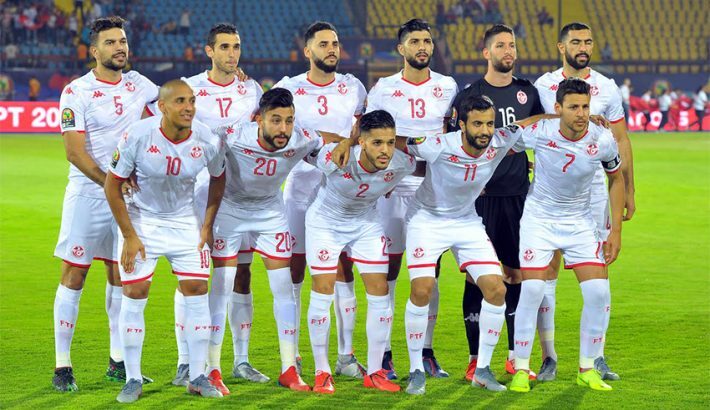
Another of the continent’s established teams, Tunisia have what it takes to at least reach the last four. That means overcoming Mali, with whom they share a group. This will not be an easy task, as the Malians could easily have been among the favourites for this competition too.
Tunisia, however, are more established in this competition. Historically, they have already won the AFCON in 2004, a feat that Mali have yet to achieve. In terms of current form, the “Eagles of Carthage” appear to be ahead of the game. They are ranked 3rd in Africa and 29th in the FIFA world rankings.
EGYPT
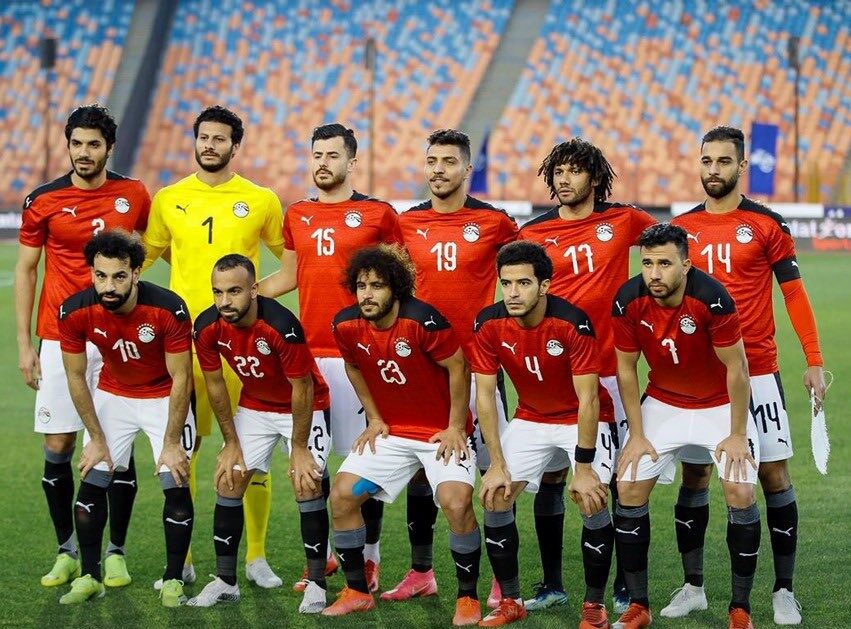
Without doubt one of the best teams in the history of this competition. Egypt will be coming here to repeat their performance of 2021 and reach the final of the African Cup against all odds. Against Senegal in the final, it came down to penalties. The experience of this team makes them one of the toughest to play against.
Buoyed by an impressive Mohamed Salah, the Pharaohs will be out to maintain their status against the other leaders. Egypt have won the AFCON seven times in their history (1957, 1959, 1986, 1998, 2006, 2008, 2010).
Key players to watch at CAN 2023
The African Cup of Nations (AFCON 2023) is also a showcase for the continent’s talent. The best players compete against each other as they try to lead their nations to the ultimate prize. So it will be a duel of key days. For this edition, there will be many more.
He is the 2023 CAF Ballon d’Or winner. Unchallenged for the title of best African player, Victor Osimhen is the spearhead of Nigeria’s attack. He has an innate ability to push the ball into the back of the net. At club level, he is one of the best ever to pull on a Neapolitan shirt. Essential to the game, he is the strong man on whom Nigeria will turn if they hope to win the trophy this year. A player to keep a close eye on.
Achraf Hakimi (Morocco)
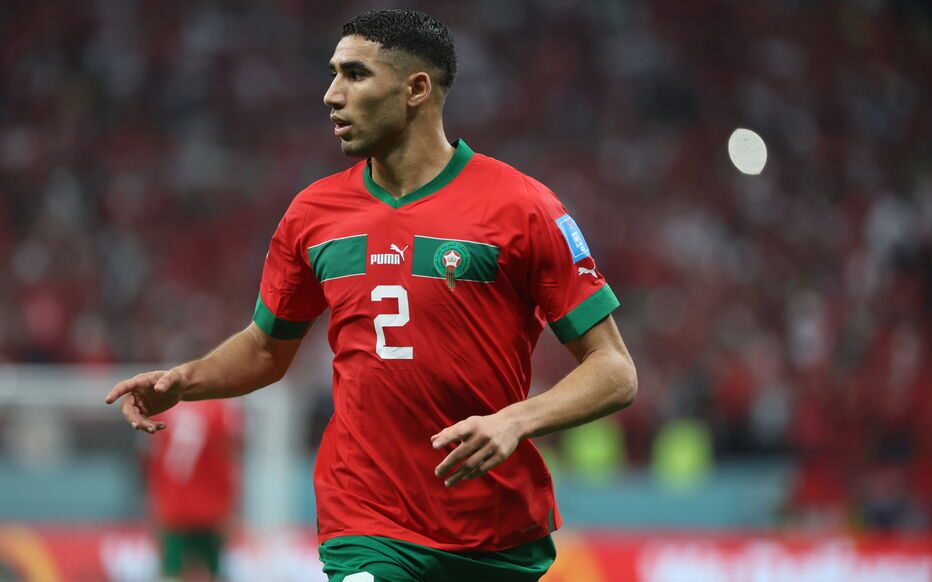
A modern right-back, very modern indeed. At the last Africa Cup of Nations, he was a masterful free-kick taker. Achraf Hakimi is the kind of player who can create extra space in attack and make life difficult for the opposition defence. A full-back who pushes his striker to defend half the time is what we call poison. An undeniable quality that makes him one of Walid Regragui’s strong points.
Sadio Mane (Senegal)
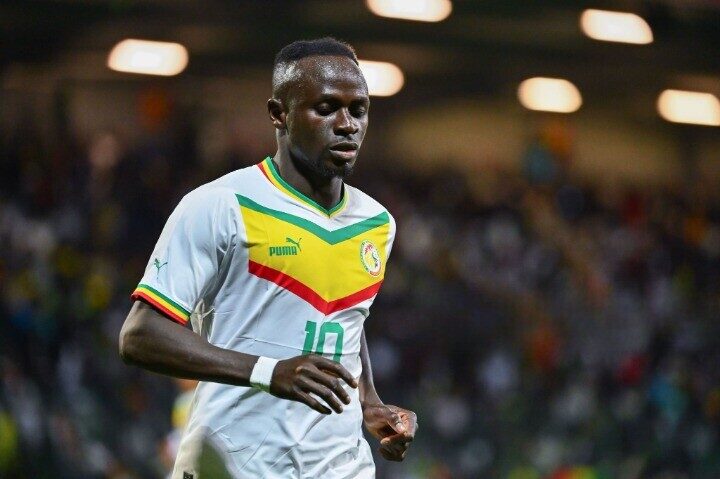
The former Liverpool striker Sadio Mané is the man to beat for the ‘Lions of Teranga’, and is still the ultimate attacking force in Senegal. His presence on the pitch has a huge impact on Aliou Cissé’s game. In fact, his absence from the last World Cup in Qatar was a major setback for Senegal. This time, as he has promised, it will be all about winning back the title. If he is to retain the trophy, he will have to pull out all the stops, having rediscovered his form in recent weeks with Al-Nassr.
Yves Bissouma (Mali)
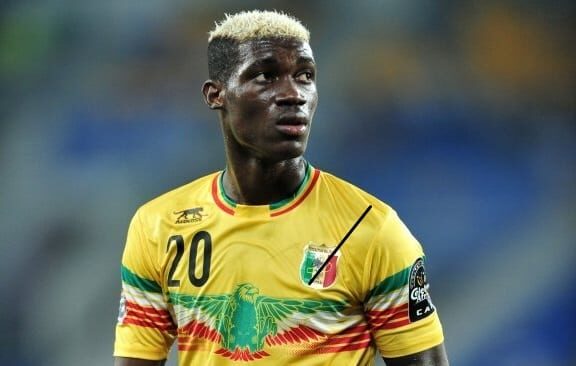
Very influential since his arrival at Tottenham, Yves Bissouma is now positioning himself as a key and decisive player for Spurs. The Malian midfielder, renowned for his intelligence and determination, should make a significant contribution to his team at the 2023 African Cup of Nations.
Riyad Mahrez (Algeria)
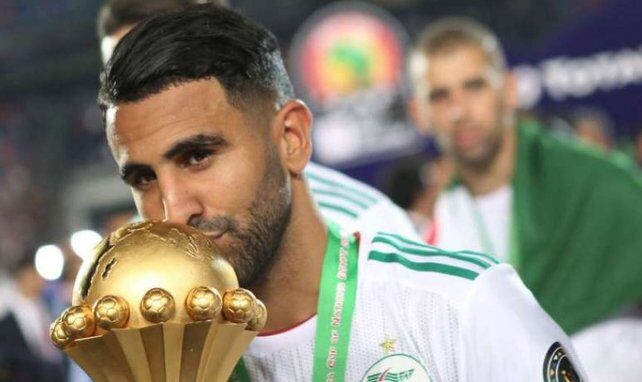
Riyad Mahrez joined Saudi Arabia this summer, maintaining his dribbling ability and vision despite a slight reduction in speed. The Algeria international remains an undeniable creative force and an exceptional shot-stopper, particularly with his left foot.
Franck Kessie (Ivory Coast)
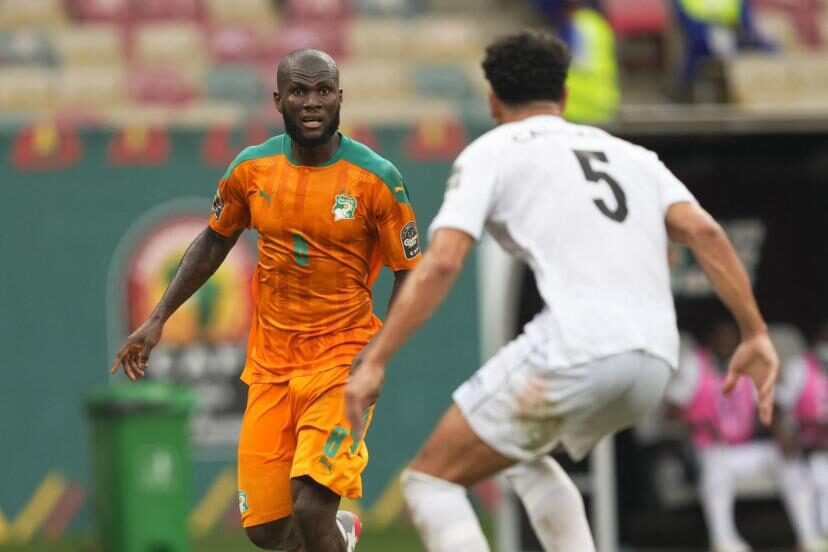
Now playing in Saudi Arabia, the former AC Milan man is an undeniable talent. The Elephants’ midfielder will undoubtedly be one of the tournament’s star performers. With his excellent ball control, ability to shoot from distance and significant physical impact, he has all the qualities needed to guide his team to the summit of the AFCON 2023.
Chancel Mbemba (DRC)
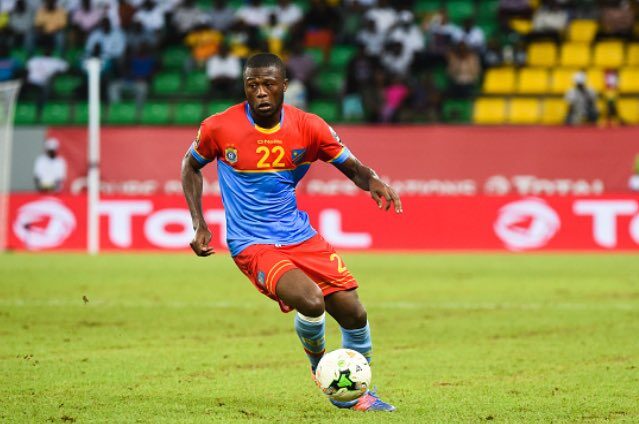
Chancel Mbemba stands out as one of the best defenders in Ligue 1. The backbone of Olympique de Marseille’s defence stands out for his rigour, precision and speed in one-on-one situations, making it difficult to get round him. He looks set to be a key player at the 2023 African Cup of Nations.
Mohamed Salah (Egypt)
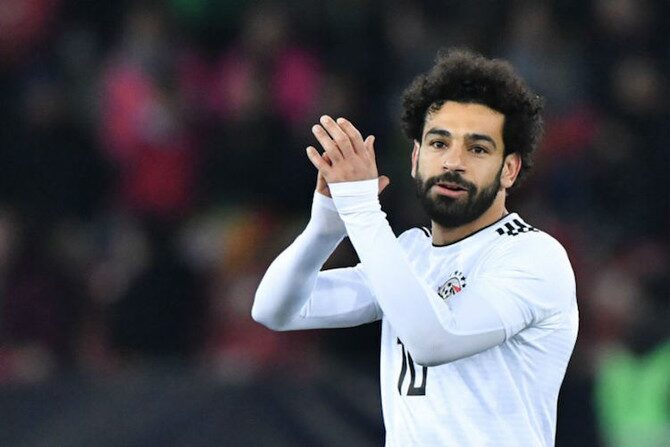
One of the best African players in history, Mohamed Salah remains the undisputed spearhead of the Pharaohs. It is he who injects technique and creativity into the Egyptian attack. Blessed with exceptional dribbling ability and world-class finishing, Salah will be under particular scrutiny at this CAF Africa Cup of Nations, offering yet another opportunity to add his name to the legend of the game.
Ellyes Skhiri (Tunisia)
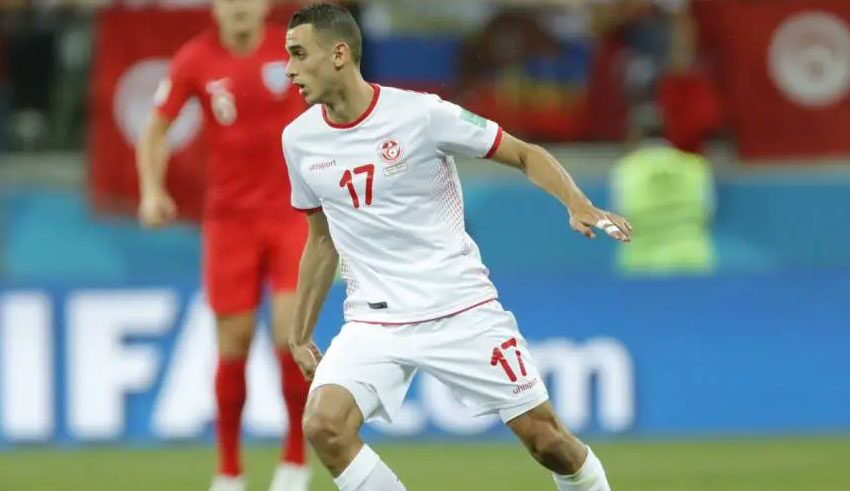
A key figure in the Bundesliga for several seasons now, Ellyes Skhiri has made a brilliant transition from Cologne to Eintracht Frankfurt. This talented playmaker has already scored five goals and remains a major asset to his team. With Tunisia, he is raising expectations ahead of the African Cup of Nations.
Vincent Aboubakar (Cameroon)
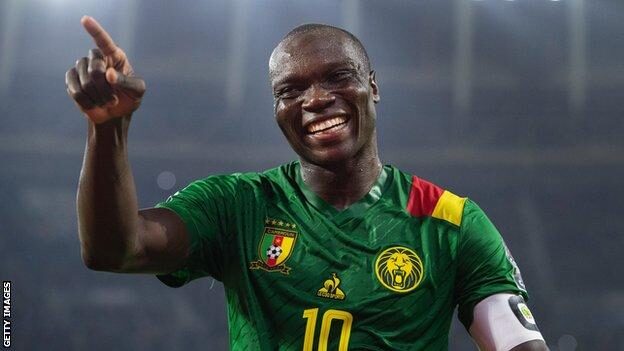
Aboubakar, Cameroon’s secret weapon at AFCON 2023
A born goalscorer, the Cameroon striker still has a lot to prove. Currently in trouble with his club Besiktas, the ‘Indomitable Lions’ captain remains a striker who continues to shine. During this tournament, he will be out to get revenge for the last few complicated days he has had at club level, and he will be out to score as many goals as he can. A player to keep an eye on.
Mohammed Kudus (Ghana)
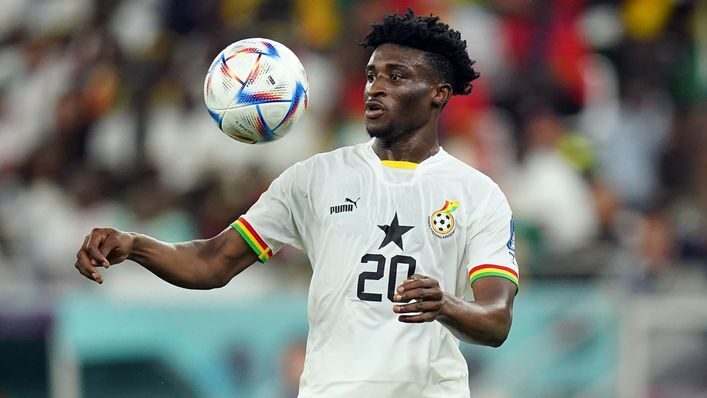
Over the years, he will be the man Ghana rely on. A player with fine technique, capable of eliminating with ease, Kudus also knows how to score. This season, he left Ajax Amsterdam for West Ham and the Premier League. Another experience that has helped him grow as a player. We could therefore see the best version of the player during this competition.
The CAN 2023 stadiums
The six stadiums selected for the 2023 African Cup of Nations are jewels that will host Africa’s biggest sporting event of the year. Côte d’Ivoire, a fervent footballing nation, is preparing to open its doors to this competition of continental renown.
6 – Yamoussoukro Stadium (20,000 seats)
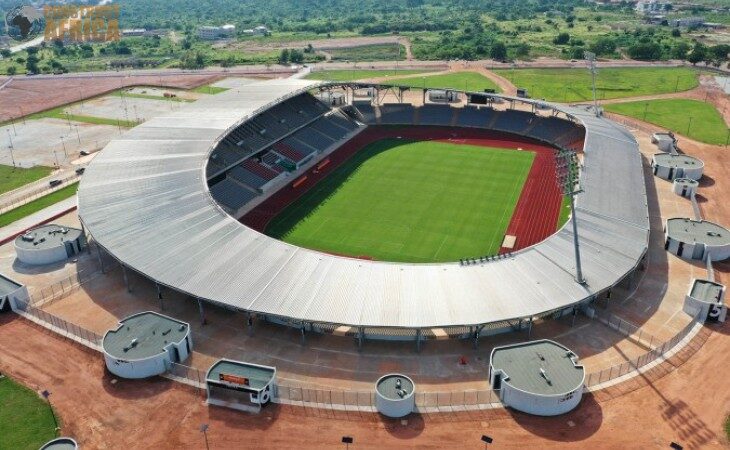
Located in Yamoussoukro, Côte d’Ivoire, the 20,000-capacity Stade Charles-Konan-Banny was inaugurated on 19 October 2018. Handed over to the Yamoussoukro municipality in June 2021, it is ready to host Ligue 1 matches. In preparation for the 2023 African Cup of Nations, the stadium is one of six being renovated in Ivory Coast.
5 – Stade Laurent Pokou (20,000 seats)
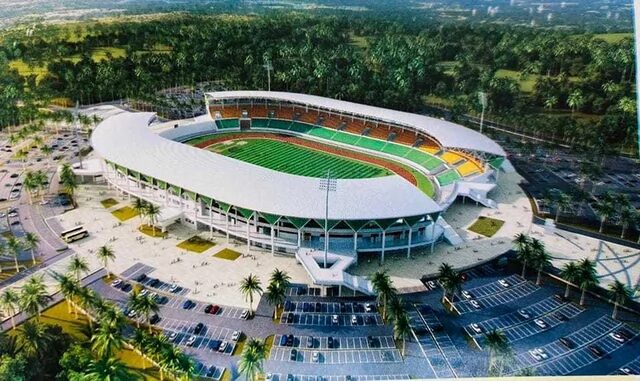
This stadium hosted its first official match on 9 September 2023, when Côte d’Ivoire beat Lesotho 1-0 as part of the qualifiers for the 2023 CAF Africa Cup of Nations. With a capacity of 20,000 fully covered seats, the stadium boasts modern architecture and first-class facilities.
4 – Stade Amadou Gon Coulibaly (20,000 seats)
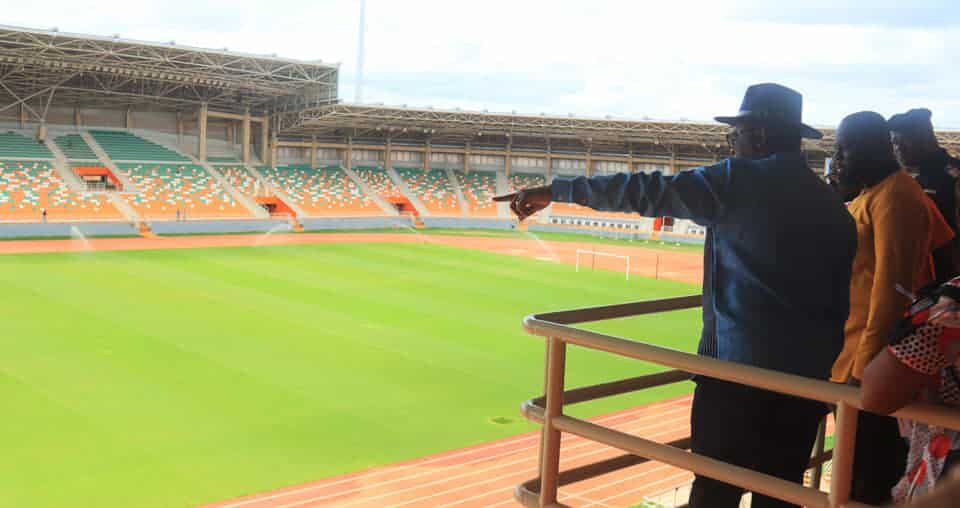
Located in Korhogo, this 20,000-capacity stadium was built in preparation for the 2021 African Cup of Nations. Work was completed in September 2023. Named in honour of Amadou Gon Coulibaly, Prime Minister of Côte d’Ivoire until 2020, the stadium hosted the final of the CAF Women’s Champions League in 2023.
3 – Bouaké Peace Stadium (40,000 seats)
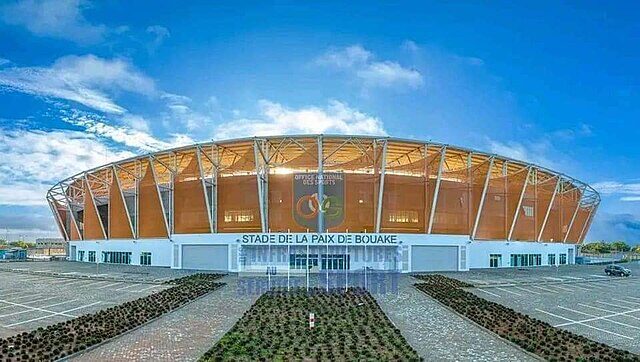
Following renovation work, this stadium has regained its status as the second largest stadium in Côte d’Ivoire. With a capacity of 40,000, it boasts impressive architecture and 24 tiers of seating. Measuring 119 × 73 metres (football-rugby), the Stade de la Paix has an oval structure with a cross-section of 24 tiers, providing an impressive setting for sporting events.
2 – Félix Houphouët-Boigny Stadium (40,000 seats)
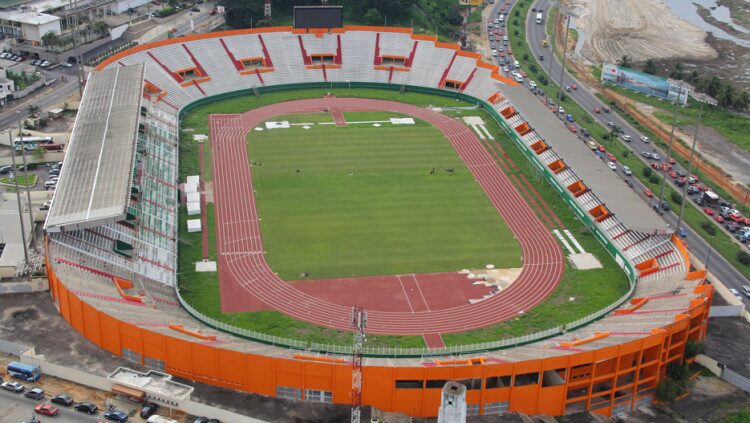
Located in Abidjan, this multifunctional stadium has a capacity of 40,000. It is equipped with modern facilities and is the setting for unforgettable moments in Ivorian sport. This historic venue is equipped with a host of modern facilities, including a press room, a doping control room, a VIP room, a treatment room, referees’ offices, a massage room, four changing rooms and an imposing video screen measuring 16.50 metres by 5.70 metres.
1 – Ebimpé Olympic Stadium (60,000 seats)
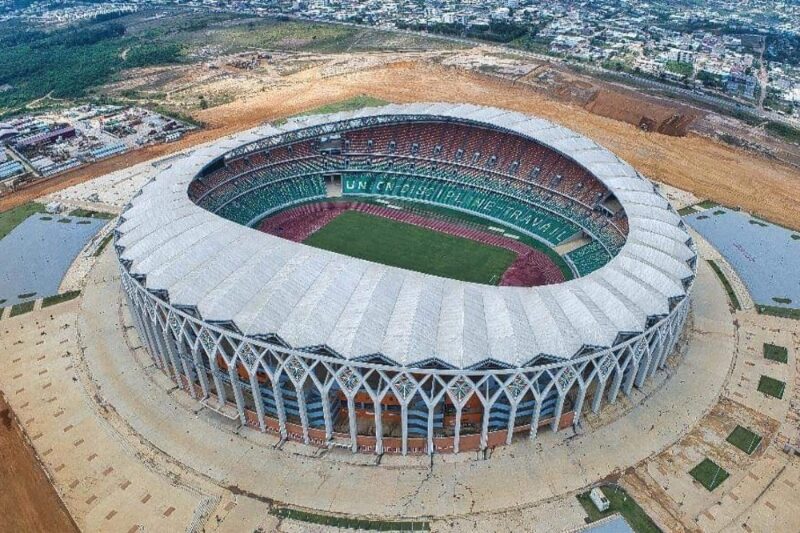
Inaugurated on 3 October 2020, this multi-purpose stadium can host football, rugby and athletics competitions. With a capacity of 60,000, it is the jewel in the crown of a vast project that includes a 287-hectare Olympic village. Despite unforeseen problems with the pitch during a friendly match in September 2023, the stadium remains a key venue for the 2023 African Cup of Nations.
Full schedule of matches
The CAN 2023 kicks off with the inaugural match between Côte d’Ivoire and Guinea-Bissau on 13 January, and the competition ends on 24 January with the match between Zambia and Morocco. Below is the full schedule for each group :
Group A: Ivory Coast – Nigeria – Equatorial Guinea – Guinea-Bissau
Matchday 1
13 January: Ivory Coast – Guinea-Bissau, 9.00pm
14 January: Nigeria – Equatorial Guinea, 3pm
Matchday 2
18 January: Ivory Coast – Nigeria, 18:00
18 January: Equatorial Guinea – Guinea-Bissau, 3pm
Matchday 3
22 January: Equatorial Guinea – Ivory Coast, 6.00pm
22 January: Guinea-Bissau – Nigeria, 6.00pm
Group B: Egypt – Ghana – Cape Verde – Mozambique
Matchday 1
14 January: Egypt-Mozambique, 18:00
14 January: Ghana – Cape Verde, 9.00pm
Matchday 2
18 January: Egypt – Ghana, 21:00
19 January: Cape Verde-Mozambique, 15:00
Matchday 3
22 January: Mozambique-Ghana, 9.00pm
22 January: Cape Verde – Egypt, 9pm
Group C: Senegal – Cameroon – Guinea – Gambia
2023 CAN calendar
Matchday 1
15 January: Senegal – Gambia, 15:00
15 January: Cameroon – Guinea, 18:00
Matchday 2
19 January: Senegal – Cameroon, 18:00
19 January: Guinea – Gambia, 9pm
Matchday 3
23 January: Guinea-Senegal, 6.00pm
23 January: Gambia – Cameroon, 6pm
Group D: Algeria – Burkina Faso – Mauritania – Angola
Matchday 1
15 January: Algeria – Angola, 9.00pm
16 January: Burkina Faso – Mauritania, 3pm
Matchday 2 :
20 January: Algeria – Burkina Faso, 3pm
20 January: Mauritania – Angola, 6pm
Matchday 3
23 January: Angola – Burkina Faso, 9pm
23 January: Mauritania – Algeria, 9pm
Group E: Tunisia – Mali – South Africa – Namibia
Matchday 1
16 January: Tunisia – Namibia, 18:00
16 January: Mali – South Africa, 9pm
Matchday 2
20 January: Tunisia – Mali, 9pm
21 January: South Africa – Namibia, 9pm
Matchday 3
24 January: South Africa – Tunisia, 18:00
24 January: Namibia – Mali, 18:00
Group F: Morocco – Democratic Republic of Congo – Zambia – Tanzania
Matchday 1
17 January: Morocco – Tanzania, 18:00
17 January: DRC – Zambia, 9.00pm
Matchday 2
21 January: Morocco – DRC, 15:00
21 January: Zambia – Tanzania, 18:00
Matchday 3
24 January: Tanzania – DRC, 9pm
24 January: Zambia – Morocco, 21:00
Direct eliminations
Round of 16
27 January :
1st Group D v 3rd B/E or F (Match 1)
Group 2 A v Group 2 C (Match 2)
28 January :
Group 1 A versus Group 3 C/D or E (Match 3)
2nd group B against 2nd group F (Match 4)
29 January :
1st Group C v 3rd Group A/B or F (Match 5)
1st Group F v 2nd Group E (Match 6)
30 January :
1st Group E v 2nd Group D (Match 7)
1st Group B against 3rd Group A/C or D (Match 8)
Quarter-finals
Friday 2 February :
Winners match 4 versus match 3 (A)
Winners match 1 versus match 2 (B)
Saturday 3 February :
Winners match 7 versus match 6 (C)
Winners match 5 versus match 8 (D)
Semi-finals
Tuesday 6 February: Winner match B versus winner match C
Wednesday 7 February: Winner match A versus winner match D
10 February: 3rd place match
The final will be played on 11 February 2024.
Must-see matches at CAN 2023
The African Cup of Nations (AFCON 2023) will also provide an opportunity to enjoy some great matches. For this edition, the big guns are sharing the groups. It’s sure to be a great showdown:
Here are the matches not to be missed:
–Ivory Coast v Nigeria on 18 January 2024 at 6pm.
–Egypt vs Ghana, on 18 January 2024 at 9pm.
–Senegal v Cameroon, on 19 January at 6pm.
–Algeria vs Burkina Faso on 20 January at 3pm.
–Tunisia will also play Mali on 20 January at 9pm.
-The match between Morocco and the DRC on 21 January 2024 at 3 p.m. is also a match not to be missed.
How can I watch the AFCON 2023?
If you live in French-speaking Africa, Canal+ Sport Afrique is the solution for access to all the AFCON matches. To follow the entire African Cup of Nations in France, the only option available is to subscribe to BeIn Sports, which broadcasts all the matches exclusively on different channels. The group is also the official broadcaster for the MENA region (Middle East and North Africa).
For those who prefer streaming, BeIn Sports offers its own platform called BeIn Connect. For subscribers to Canal+’s sports package in France, BeIn Sports can be accessed via the MyCanal application. It is important to note that this option is only available to French residents.
Potential candidates for the final crown
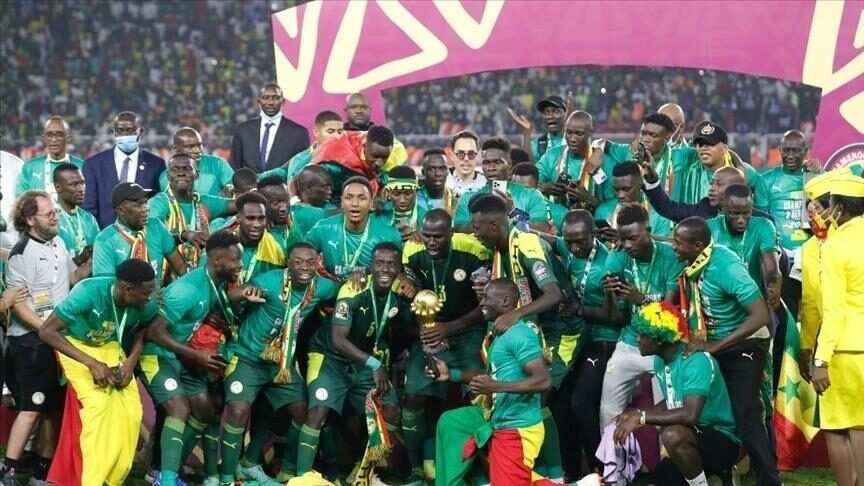
Senegal: Holders of the title, Senegal are the main contenders for the title. There is no debate.
Morocco: Impressive at the last World Cup, the Moroccan team is an overwhelming favourite for the 2023 CAF Africa Cup of Nations.
Algeria: African champions in 2019, the Algerian team has a homogeneous squad capable of going all the way.
Records to be broken at AFCON 2023
- Biggest win: 6-1 (Ivory Coast against Ethiopia in 1970) and toughest defeat: 1-6 (Botswana against Guinea in 2012).
- The number of goals scored in a match: The record for the number of goals scored in a AFCON match is 9, set in Egypt’s 6-3 victory over Nigeria in 1963.
- The number of goals in one edition in the 21st century: The record for the number of goals scored by a player in one edition of the CAN in the 21st century is eight, held by Cameroon’s Vincent Aboubakar in 2021. This record could be broken during the next competition if an exceptional player manages to surpass this mark.
- The number of red cards: The record for the number of red cards shown in an edition of the CAF Africa Cup of Nations is 21, set in 2002 in Mali. This record could be broken in 2023 if the level of refereeing is low or if the rules are stricter.
The standard of African arbitration
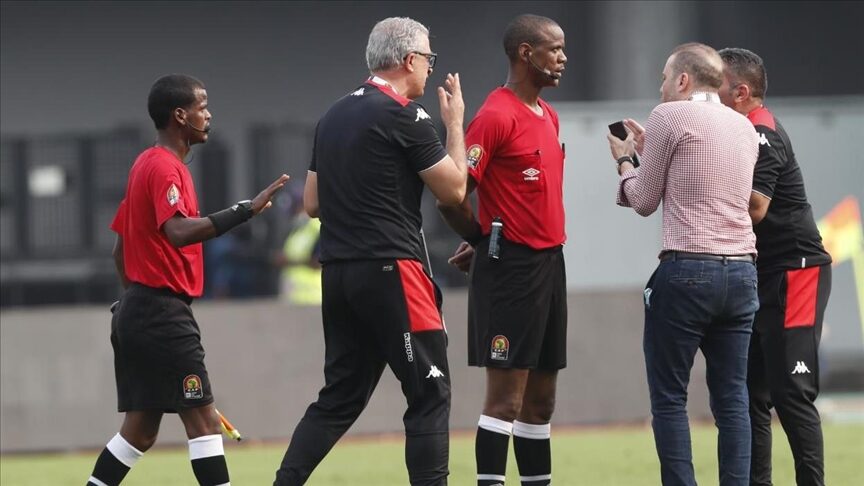
African arbitration is an area that gives rise to much debate and controversy, both at continental and international level. African arbitrators are often criticised for their lack of professionalism, competence, neutrality and transparency. Some are even accused of corruption, favouritism or manipulation.
Faced with these problems, the Confederation of African Football (CAF) has taken steps to improve the standard of refereeing in Africa, notably by strengthening the training, supervision, evaluation and sanctioning of referees. CAF has also introduced a VAR (video-assisted refereeing) system to help referees make fairer and more accurate decisions.
What is expected of referees at AFCON 2023
At CAN 2023, African referees will be expected to demonstrate professionalism, competence, neutrality and transparency. They will also have to be able to use VAR effectively and consistently, without abusing it or relying on it entirely. They will also have to cope with pressure from the public, the media, players and coaches, who will not hesitate to criticise or challenge them in the event of error or doubt. They will also have to respect the rules of the game, CAF’s instructions and sporting ethics, without allowing themselves to be influenced by external or personal interests.
In short, African referees will have a crucial and difficult role to play at AFCON 2023, as they will be the guarantors of the credibility, quality and fairness of African football. They will have to rise to the challenge and show that they are capable of refereeing at an international level, in line with the standards and expectations of modern football.
The African Cup of Nations (AFCON 2023) promises to be an historic occasion in Côte d’Ivoire, only the second time that the country of Laurent Pokou and Didier Drogba has organised this competition after the 1984 edition.

